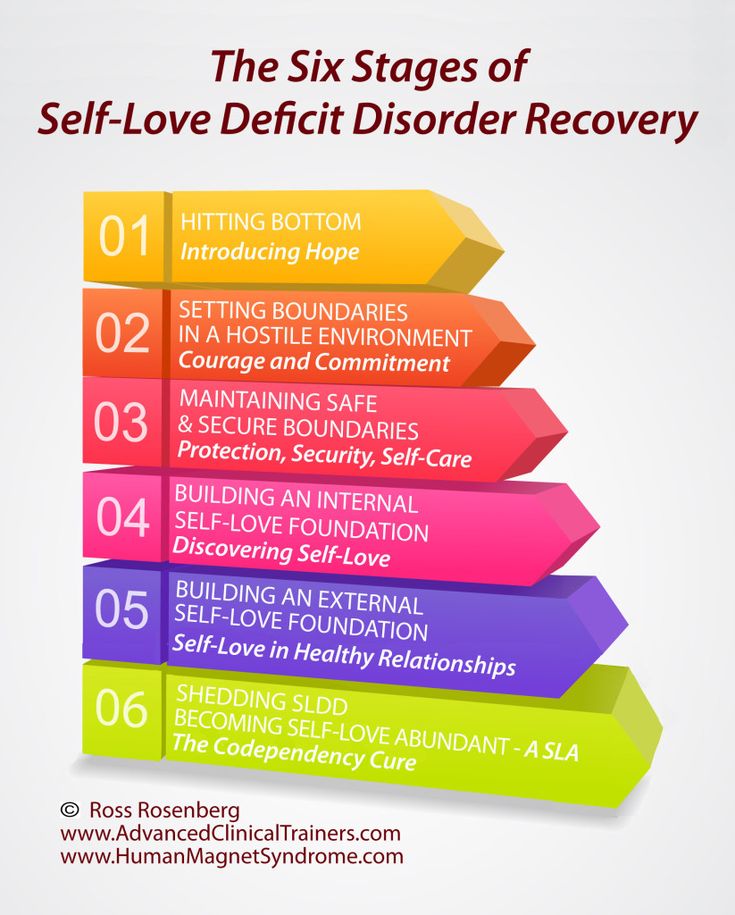Is cheating ever acceptable
Can Cheating Ever Be Okay?
How you answer the question “Is cheating ever okay?” may depend upon whether you are the cheater or the one being cheated on. And perhaps by your own moral compass. Some look at cheating as a black and white issue and others as one with many shades of grey. These differing viewpoints can cause big problems in any relationship.
The question as to whether cheating is ever justified is both an ethical and moral one. The general answer for most is, “no”, it is never okay. How does that explain the fact that it continues to happen then? Is it just poor impulse control? Yes, in many cases it probably is. In others, however, people will claim there are justifiable reasons for stepping out of the bounds of their relationship. But are these justifications really, well, real?
Let’s take a look at three of the most common ways people justify cheating in their own mind.
1. Revenge cheating
Turnabout as fair play is a common justification for infidelity. If you have been cheated on by your husband or wife, the desire to hurt your spouse the way you have been hurt can be strong, almost overwhelming. Even if you are patently against cheating it can be hard to resist the urge, and even harder if an opportunity is presented to you. When the cute girl in the office gives you signals or the guy at the bar seems interested, it is easy to think, “It’s my turn.”
Is it okay?
No. We were all taught in preschool that two wrongs don’t make a right and it is still true as adults. You won’t make anything better by cheating on your spouse. Not only does it not fix anything, it just adds to the problems
2. No Sex, Sex
This is a tough one for many. Most men and women enjoy having sex on a regular basis. But in many relationships the scales are weighted toward one side or the other. He wants more than she does, or she wants more than him. Generally couples work this out and find their own marital balance. In some relationships, however, one partner may not want sex at all. These circumstances can put one partner in a quandary. Celibacy or cheat?
In some relationships, however, one partner may not want sex at all. These circumstances can put one partner in a quandary. Celibacy or cheat?
Is it okay?
Again, this is another no. Yes, this is a seemingly unfair and untenable situation, but having an affair will not make it better. Problems in the bedroom do actually have solutions — it just takes effort to find them. A lack of sex drive in one partner can be due to other problems in the marriage that need to be addressed, or even be a result of biological issues that can have remedies too. It isn’t worth it to risk your marriage and compromise yourself by having an affair. Instead address the issue with sensitivity and try working together toward changing things.
3. “The Marriage Was Already Over” Affair
When you barely speak to one another, or you can’t remember what it feels like to be “in love”, getting swept up in new romance can be very tempting. It feels good to feel understood and appreciated for the first time in a long time. How can that be wrong? You may even begin consoling yourself with one of the many platitudes for these situations, like “the heart wants what the heart wants.” After all the marriage was basically over, right?
How can that be wrong? You may even begin consoling yourself with one of the many platitudes for these situations, like “the heart wants what the heart wants.” After all the marriage was basically over, right?
Is it okay?
Once more, no, it’s really not okay. Wanting to feel loved and appreciated is normal. But when you have taken vows with one person you don’t really get the option morally or even legally to begin a relationship with another person while you are still in a relationship. No, having an affair is not illegal, but your marriage is a legally recognized partnership and cheating will only complicate matters. If your relationship is in a spot where having an affair seems justifiable, stop, take stock of things and consider your options. It might be time to try counseling if you haven’t already. Or end the relationship first.
There really is never a justification for cheating on someone you have made a promise to. There are times when the reasoning can seem justified and better than “because I wanted to,” but breaking a promise is still wrong. Especially when the promise is the most personal kind — to respect your partner enough not to be intimate with someone else.
Especially when the promise is the most personal kind — to respect your partner enough not to be intimate with someone else.
Can Cheating Ever Be Okay?
How you answer the question “Is cheating ever okay?” may depend upon whether you are the cheater or the one being cheated on. And perhaps by your own moral compass. Some look at cheating as a black and white issue and others as one with many shades of grey. These differing viewpoints can cause big problems in any relationship.
The question as to whether cheating is ever justified is both an ethical and moral one. The general answer for most is, “no”, it is never okay. How does that explain the fact that it continues to happen then? Is it just poor impulse control? Yes, in many cases it probably is. In others, however, people will claim there are justifiable reasons for stepping out of the bounds of their relationship. But are these justifications really, well, real?
Let’s take a look at three of the most common ways people justify cheating in their own mind.
1. Revenge cheating
Turnabout as fair play is a common justification for infidelity. If you have been cheated on by your husband or wife, the desire to hurt your spouse the way you have been hurt can be strong, almost overwhelming. Even if you are patently against cheating it can be hard to resist the urge, and even harder if an opportunity is presented to you. When the cute girl in the office gives you signals or the guy at the bar seems interested, it is easy to think, “It’s my turn.”
Is it okay?
No. We were all taught in preschool that two wrongs don’t make a right and it is still true as adults. You won’t make anything better by cheating on your spouse. Not only does it not fix anything, it just adds to the problems
2. No Sex, Sex
This is a tough one for many. Most men and women enjoy having sex on a regular basis. But in many relationships the scales are weighted toward one side or the other. He wants more than she does, or she wants more than him. Generally couples work this out and find their own marital balance. In some relationships, however, one partner may not want sex at all. These circumstances can put one partner in a quandary. Celibacy or cheat?
Generally couples work this out and find their own marital balance. In some relationships, however, one partner may not want sex at all. These circumstances can put one partner in a quandary. Celibacy or cheat?
Is it okay?
Again, this is another no. Yes, this is a seemingly unfair and untenable situation, but having an affair will not make it better. Problems in the bedroom do actually have solutions — it just takes effort to find them. A lack of sex drive in one partner can be due to other problems in the marriage that need to be addressed, or even be a result of biological issues that can have remedies too. It isn’t worth it to risk your marriage and compromise yourself by having an affair. Instead address the issue with sensitivity and try working together toward changing things.
3. “The Marriage Was Already Over” Affair
When you barely speak to one another, or you can’t remember what it feels like to be “in love”, getting swept up in new romance can be very tempting. It feels good to feel understood and appreciated for the first time in a long time. How can that be wrong? You may even begin consoling yourself with one of the many platitudes for these situations, like “the heart wants what the heart wants.” After all the marriage was basically over, right?
It feels good to feel understood and appreciated for the first time in a long time. How can that be wrong? You may even begin consoling yourself with one of the many platitudes for these situations, like “the heart wants what the heart wants.” After all the marriage was basically over, right?
Is it okay?
Once more, no, it’s really not okay. Wanting to feel loved and appreciated is normal. But when you have taken vows with one person you don’t really get the option morally or even legally to begin a relationship with another person while you are still in a relationship. No, having an affair is not illegal, but your marriage is a legally recognized partnership and cheating will only complicate matters. If your relationship is in a spot where having an affair seems justifiable, stop, take stock of things and consider your options. It might be time to try counseling if you haven’t already. Or end the relationship first.
There really is never a justification for cheating on someone you have made a promise to. There are times when the reasoning can seem justified and better than “because I wanted to,” but breaking a promise is still wrong. Especially when the promise is the most personal kind — to respect your partner enough not to be intimate with someone else.
There are times when the reasoning can seem justified and better than “because I wanted to,” but breaking a promise is still wrong. Especially when the promise is the most personal kind — to respect your partner enough not to be intimate with someone else.
“High-ranking people didn’t like it at all”: why FSIN analyst Anna Karetnikova left Russia
- Ekaterina Sedlyarova
- BBC
The author of the photo, ANNA KARETNIKOVA
Photo caption,Together with other human rights activists, Karetnikova organized food for prisoners, sought to resettle overcrowded cells
Anna Karetnikova, a leading analyst at the Moscow department of the Federal Penitentiary Service (FSIN), announced this week that she had left Russia. In January, she was suspended from work, and colleagues warned her that it was not safe for her to stay in Russia, she said. In an interview with the BBC, Karetnikova said she was ready to go to jail, but changed her mind.
In an interview with the BBC, Karetnikova said she was ready to go to jail, but changed her mind.
Prior to the Federal Penitentiary Service, Karetnikova worked for eight years in the public monitoring commission (POC) of Moscow and collaborated with the human rights center "Memorial" (liquidated by a decision of a Russian court, even earlier declared a "foreign agent" in Russia). nine0011
Karetnikova repeatedly reported violations of the rights of those arrested. For example, in 2016, she discovered that SIZO-2 "Butyrka" has an old "secret tower" overflowing with prisoners.
Together with other human rights activists, Karetnikova organized food for prisoners - returned vegetables to the "vegetable stew" of pasta and pearl barley, sought to resettle the overcrowded women's cells, in which the prisoners slept on the floor, because there were not enough beds.
At the same time, Karetnikova not only found violations within the FSIN system, but also did not hide her joy from her victories in social networks, for which some criticized her. Several times the Federal Penitentiary Service issued Karetnikova certificates and thanks. nine0011
Several times the Federal Penitentiary Service issued Karetnikova certificates and thanks. nine0011
Now a human rights activist in France, she told the BBC about her departure and her work at the Federal Penitentiary Service.
"I considered going to jail as an acceptable option for myself"
BBC: Why did you leave?
Skip the Podcast and continue reading.
Podcast
What was that?
We quickly, simply and clearly explain what happened, why it's important and what's next. nine0011
episodes
The End of the Story Podcast
Anna Karetnikova : If I hadn't been suspended, I wouldn't have left, despite all the warnings that it was unsafe for me to stay and continue working.
I thought I would keep going to work no matter what the threat and no matter the cost. By the way, I considered it as an acceptable option for myself - to sit in jail. Then I realized that with so many people who are imprisoned for their convictions, it is not entirely right to sit on the neck of human rights activists and increase the burden on them. From here, at least I can advise, and there I would sit on my neck. nine0011
By the way, I considered it as an acceptable option for myself - to sit in jail. Then I realized that with so many people who are imprisoned for their convictions, it is not entirely right to sit on the neck of human rights activists and increase the burden on them. From here, at least I can advise, and there I would sit on my neck. nine0011
Prison is such a terrible "money squeezer": give me medicine, normal food, give me something else...
BBC: Could you please tell me how you were warned?
A.K. : It was a conversation at work. I was told that all the high-ranking people in the Federal Penitentiary Service did not like me at all. And that many interesting polls, questions, interrogations are waiting for me - in the prosecutor's office, the CSS [Department of Internal Security], somewhere else ...
And the next day I was actually called to the CSS. There were many interesting questions. Why do I collect pens, papers, threads? Why bring them to the arrested? Is this part of my job responsibilities? Who allowed me to blog and give some grades there?
Why do I collect pens, papers, threads? Why bring them to the arrested? Is this part of my job responsibilities? Who allowed me to blog and give some grades there?
The author of the photo, ANNA KARETNIKOVA
Photo caption,Anna Karetnikova, archive photo
It is obvious that they tried to let me down under abuse of authority. Already at least it smacked of dismissal, and as a maximum - there is also an article on abuse of office. True, they should entail some kind of consequences, but our system is rather aggressive, and if consequences are needed, then they will be. Anyway, the next day [January 11] I went to the pre-trial detention center, they didn’t let me in there. nine0011
BBC: What did it look like?
A. K . : They said: "Anna Georgievna, the chief's instructions are not to let you in there." They apologized. One employee was very worried. "Do not think anything personal!" - He speaks.
The same evening I left for Minsk, from there to Lithuania, where I was admitted on a D visa. From Lithuania to France.
BBC: Working in the Federal Penitentiary Service , Is it possible to leave the country?
A.K. : No one has ever told me at the Federal Penitentiary Service that I have a restriction on movement. I am a civilian employee without shoulder straps, I do not have access to classified materials.
"My position was unique"
BBC: Was your work in the Federal Penitentiary Service different from your human rights work?
A.K. : Exactly the same work. It was as if it was implied that I continue the activities that I did before. These are daily visits to pre-trial detention centers, hearing those arrested and convicted who have some kind of problem, solving these problems. ..
..
First of all, this is help. In particular, how to get to a doctor, ensure security, provide material and domestic amenities, some legal issues on which I could advise.
BBC: In other regions Russia positions leading analyst FSIN seems to be no .
A.K. : There is no such position, it was introduced specially for me. There are human rights assistants, but they mainly do paperwork - namely, replies that everything is fine. My position was unique.
Photo by ANNA KARETNIKOVA
Photo caption,According to Karetnikova, she did not have to deal with cases of physical torture in the Federal Penitentiary Service
BBC: What did and did not work out during the six years of work in the Federal Penitentiary Service?
A.K. : I do not share my membership in the PMC and my work as an analyst at the Federal Penitentiary Service. We have helped thousands of people.
We have helped thousands of people.
Of the global system things, we managed to improve and not lose the quality of nutrition. It is more difficult with medicine - either in a civilian hospital they stop accepting remand prisoners without policies, or something else happens. But I want to believe that we managed to move medicine a little. nine0011
Unfortunately, the provision of medicines has completely deteriorated recently. And that set us back a lot. I don’t know, in connection with the war or with what, but the drugs in the Federal Penitentiary Service are bad.
"It's like someone torturing - thank God I haven't come across this"
BBC: The founder of the human rights project Gulagu.net Vladimir Osechkin wrote an angry post about your departure. Are you in conflict with him?
A.K. : Osechkin has a conflict with everyone - such a person. I saw him twice in my life. I saw him when he got involved with the Public Chamber, he [had] connections in the presidential administration, something else. And then he immediately became a persecuted human rights activist...
I saw him when he got involved with the Public Chamber, he [had] connections in the presidential administration, something else. And then he immediately became a persecuted human rights activist...
I think he received asylum. I even named the people who would give him a recommendation. All the time he wrote denunciations against me to the Federal Penitentiary Service, and very peculiar ones at that. Either I insulted the director of the Federal Penitentiary Service on the Internet, then some girl in prison gave me a thread with a button, and I posted a photo on the Internet ...
BBC: Why didn't you want to cooperate with him?
A. K . : How can I work as a civil servant? He probably wanted me to write to him about the torture...
- "My name is Sergei Savelyev, and I transmitted the terrible footage of prisoners being tortured.
 " BBC interview
" BBC interview - "Camera filming a man being thrown out of a window." Gulagu.net published a new torture video
- Nearly 200 prisoners of the Saratov colony reported violence
BBC: There are known cases of prisoners being tortured in correctional colonies. Are there tortures in the pre-trial detention center?
A.K. : Maybe, I think, but such that someone physically tortured someone - thank God, I did not come across this, otherwise I would not be able to work in the Federal Penitentiary Service. If I saw that some situation was suspicious, a person was placed where he should not be, naturally, I immediately reacted to this. nine0011
BBC BBC: Because, as far as I understand, you found them.
A.K. : For me there is no difference between the period of my stay in the PMC and the period of my work in the Federal Penitentiary Service. Because I did the same thing. I know what I must do. What words should I say to employees so that they become smarter and kinder. nine0011
Because I did the same thing. I know what I must do. What words should I say to employees so that they become smarter and kinder. nine0011
I hope that the employees of the Federal Penitentiary Service after talking with me have become a little more humane, a little more reasonable. It's a difficult environment, but that doesn't mean you shouldn't try to make it better. You can function in it without changing yourself at all.
Then they began to repeat often that it is not necessary to write to social networks. Probably, it would be possible not to write - then it would have lasted a little longer.
"FSIN completely collapsed, closed"
BBC: Do you mean posts in " Facebook e" and telegram channel "Stengazeta SIZO"?
A.K. : Yes, now such a policy has gone that you can’t write at all - neither bad nor good without agreement with the press service of the Federal Penitentiary Service. Two sentences only the press secretary has the right to say, and three no longer have.
Two sentences only the press secretary has the right to say, and three no longer have.
That is, [the system] of the Federal Penitentiary Service has completely collapsed, closed. And when they hired me, they said that we would be more transparent, more open. It is clear that these are mostly words, but now there are not even words. nine0011
Image copyright, Filipp Kochetkov/TASS
Image caption,File photo
BBC: Is this due to the war?
A.K. : I think in many ways yes. Now everything is closed. If an opinion differs from the general line of the party, then it is not welcome, and it is better to keep it to yourself, the party itself will say everything.
BBC: Is there censorship in the letters of the FSIN system ?
A.K. : Now the letters [in the system] of the Federal Penitentiary Service are relatively free, oddly enough. Even our political prisoners. There is no special censoring. Sometimes a bad censor will take a number and cross it out or cross it out about politics, but in general the censor has no authority to cross it out.
Even our political prisoners. There is no special censoring. Sometimes a bad censor will take a number and cross it out or cross it out about politics, but in general the censor has no authority to cross it out.
BBC: Are there many political prisoners now?
A. K . : In addition to well-known people and in addition to my friends, comrades who are now in jail, there are now a lot of people who are in jail because they wrote something on the Internet. When the young guys who read poetry at the Mayakovsky Readings drove in, the employees of the Federal Penitentiary Service were surprised. "What is it," they say, "to put you in jail for such nonsense."
"Send me to war, Anna Georgievna"
BBC: What has changed in the SIZO since the beginning of the war? nine0040
A.K. : A common request has appeared: send me to war, Anna Georgievna. Not the whole prison, but a large number of appeals - different people of different ages from different pre-trial detention centers of various ages.
Not the whole prison, but a large number of appeals - different people of different ages from different pre-trial detention centers of various ages.
It's just that people don't want to sit. They do not understand that war is death, and they see some way to break out of prison.
- “Terrible man”. What is known about the pardoned prisoner who fought in Ukraine as part of Wagner PMC
- "Know the heroes by sight." In Russia, a memorial plaque was unveiled to a prisoner recruited to fight in Ukraine
- "They flooded so much that no one expected." How do prisoners react to calls to join Wagner PMC
BBC: People come to the SIZO to recruit into PMCs or the army?
A.K. : The only case that I came across was when they came for a specific man who was convicted and was serving a sentence in the housekeeping unit in one of the isolation wards. He is a colonel, and they planted him as an active colonel, he has Syrian combat experience ...
He is a colonel, and they planted him as an active colonel, he has Syrian combat experience ...
And as he later told, they said: now you sign, tomorrow already on the train, and the day after tomorrow at the front. He refused. He said that he was unfairly convicted, he had article 159 for fraud, he wanted to be released on parole. "If I need to," he says, "I'll go to war myself without your participation."
And he stayed, but now he has already left on parole.
BBC: Are there symbols of war inside the SIZO and in the Federal Penitentiary Service?
A.K. : The letter Z was hung up at some point in the meeting and administration room, then it disappeared somewhere.
More often prisoners paste over the walls and draw on themselves, embroider V and Z signs. There is a norm in the internal regulations that you can’t paste anything on the walls, and a couple of times I got to the bottom of them with the silent support of the employees. It's very good that you are such patriots, but you can take this picture now...
It's very good that you are such patriots, but you can take this picture now...
"I didn't think that I would ever have to leave my homeland"
BBC: Why did you go to France in particular?
A.K. : I used to learn French at school. Friends from the Union of Solidarity with Political Prisoners moved here. We went to where friends are.
I don't have a place to live and I don't have a job yet. My son also came here, who has been in Uzbekistan since September. He has anti-war convictions, he left when "partial mobilization" began.
All this is very sad. I never thought that I would ever have to leave my homeland. nine0011
To keep getting the BBC news, subscribe to our channels:
- Telegram
Subscribe to our "Context" newsletter: it will help you understand the events.
Why alcohol seems like a harmless weakness and how to give it up > Rubric Society in Samara
We have a tradition to celebrate holidays with alcohol. Feasts with glasses or wine glasses are an integral part of our gatherings. Why is drinking "a little" still bad? Is it really impossible to enjoy life without "degrees"? These questions were asked by the characters in the movie "One More" (18+), who experimented with doses, believing that a small amount of alcohol would improve their mood and give them strength at work. nine0457
The topic of the influence of alcohol has been quite relevant for many years. Evgenia Gambarova, a psychologist and lecturer at Togliatti State University, spoke about the culture of drinking, the amount of alcohol consumed by citizens in Russia, and its deceptive positive effect.
From the first drink
Most people perceive alcoholics as weak-willed people. In society, it is believed that the use or abuse is a whim. But alcoholism is a disease, a form of addiction. The path to it always begins with the first glass. For some, alcohol becomes a relatively harmless part of life, while for others it destroys it. The thing is, some people are more addicted than others. The reason is in several factors - biological, psychological and social. nine0011
The path to it always begins with the first glass. For some, alcohol becomes a relatively harmless part of life, while for others it destroys it. The thing is, some people are more addicted than others. The reason is in several factors - biological, psychological and social. nine0011
It is generally accepted that an alcoholic is a socially unadapted person who drinks all the money, misses work, and so on. But in principle, anyone who uses regularly, even a little, can be considered addicted. He alleviates his condition, but at the same time behaves socially acceptable for the time being.
Predisposition
The statistics of alcohol consumption is disappointing. According to Rosalkogolregulirovanie, in 2022, 549 million liters of strong spirits were sold in the country, which is 42 million more than in the period of 2021, and 44 million more than in the first half of 2020. nine0011
Consider the statistics on consumption in the regions. The top five includes the Sakhalin Region, the Chukotka Autonomous Region, the Kurgan Region, the Republic of Buryatia, and the Nenets Autonomous Region. This arrangement is quite natural. I have already mentioned the biological factor. Most of the people with a genetic predisposition to drinking live in the mentioned regions. It is believed that the enzyme alcohol dehydrogenase (ADH) is genetically reduced in local peoples, so addiction develops faster. nine0011
This arrangement is quite natural. I have already mentioned the biological factor. Most of the people with a genetic predisposition to drinking live in the mentioned regions. It is believed that the enzyme alcohol dehydrogenase (ADH) is genetically reduced in local peoples, so addiction develops faster. nine0011
If we systematically look at the question of why consumption has increased in Russia as a whole, then we can associate this with the growing tension and the situation in the world as a whole. People can’t stand it, and alcohol for them is a destructive way of calming down. An analysis of society shows that all drinkers have almost the same attitude towards stress, that is, they cannot bear it.
Psychological factor
Let's imagine that a person became ill, he faced tension, negative emotions, a non-resource state, and then he drank - and immediately felt better. A dominant responsible for alcohol addiction begins to form in the brain. That is, the chain “drank, felt better, drank, felt better” is a direct path to the disease. nine0011
nine0011
People have different ways to relieve tension, but the future alcoholic has no such choice. The addict does not have enough or no other options to compensate for the negativity they face. In essence, psychological addiction is a solution to emotional problems by drinking alcohol. An alcoholic, as a rule, is an anxious person, often an insecure person with a weak internal support.
Strong stress or unexperienced grief can become a precondition for alcoholism. So, at the moment of crisis, a person prefers to take up a bottle, rather than go to a psychologist or psychotherapist. nine0011
The social factor is also of great importance. There is a tolerance for alcohol in our society. Feasts, free access to alcohol, drinking with children, and sometimes with them, a lot of jokes about non-drinkers, gifts for the holidays in the form of bottles of alcohol - all this is considered the norm. However, there is intolerance towards people who say “no”. This approach exacerbates the situation.
Degradation
Alcohol reduces a person's potential and sometimes destroys a person. If the psychological stage of dependence turns into a chemical one, then this is already a serious problem. This will require treatment by a psychotherapist-narcologist. Moreover, there are no guarantees of complete deliverance from it. nine0011
A person with alcohol dependence coarsens, becomes numb. Alcohol sharply reduces cognitive functions - memory, attention. Alcohol sometimes causes a rather noticeable deformation of the inner world: a person becomes more primitive, often loses his normal appearance.
There are some preventive measures to combat alcoholism - 15 years of experience in studying people's behavior allows me to talk about this. It is necessary to work on the development of your personality, to understand and accept yourself, to be aware of your emotions, desires, states. It is important to give meaning to life, surround yourself with people with a healthy attitude, maintain your values, engage in psychological health, not try to be good for everyone, be able to say “no”. nine0011
nine0011
The main thing is to find suitable ways to relieve stress. It will always be in our lives, there is no escape from it. The best option is to immerse yourself in sports, yoga, find new hobbies and hobbies.
Useful literature about the dangers of alcohol and the fight against addictions
Yulia Gaynanova "The Bottle: A Book for Those Who Love to Drink" (18+) - a story about women who decided to stop drinking for 365 days. This is a positive publication that can give hope that the goal is achievable. nine0011
Sarah Hepola A sober diary. What happened to the one who drank 1000 bottles a year ” (18+) is a book about how to build a sober life on your own, using the example of the main character who was able to find herself again by giving up alcohol.
Oleg Stetsenko "How not to drink" (18+) - motivating text from an experienced narcologist. The author details how his patients struggled with addiction.














